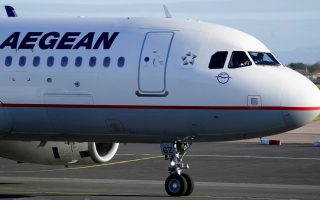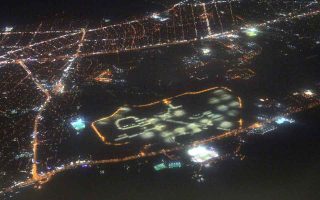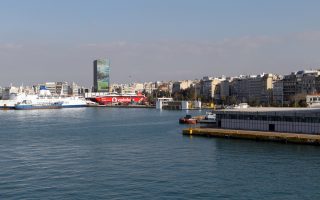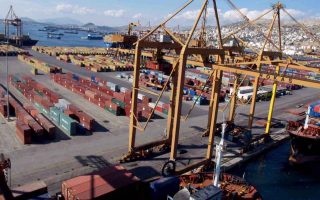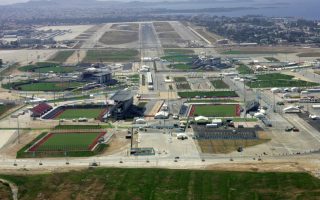Cosco’s Piraeus plan approved, in part
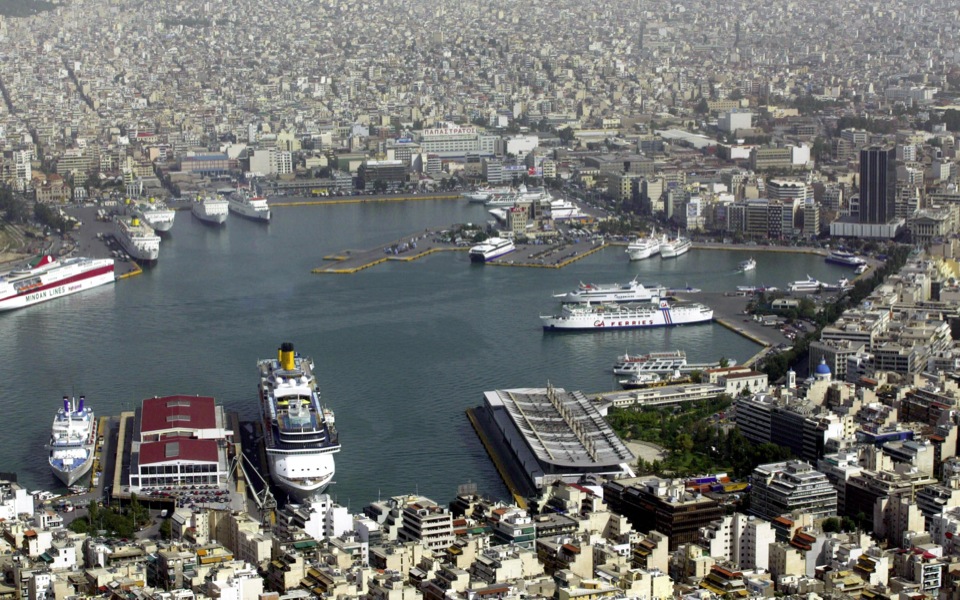
Greece’s Port Planning and Development Commission (ESAL) last week approved an investment plan by Chinese shipping giant Cosco for its subsidiary, Piraeus Port Authority (OLP), in essentially the same form that it had been agreed upon with the previous administration – with a reduction to the planned size of a shopping center and car terminal – but put a freeze on a proposal for an additional investment of 300 million euros.
The 300-million-euro investment pertains to a fourth container terminal that had been included by Cosco in a master plan it submitted in late August, following the elections in July that brought the new government to power.
ESAL deemed that the conditions for this additional investment have not matured yet and invited the investor to resubmit its proposal at a later date.
Cosco sources told Kathimerini that the company “taken aback by the decision” and that it expressed surprise as to why the investment is being frozen, albeit temporarily, “when it would have generated 1,200 jobs plus an additional 300 during the construction phase, plus the added value from the entire activity for the economy.”
That Chinese group’s disappointment is also shared by a large section of the market, mainly as a result of the fact that this investment had been made public before the election by the current prime minister, Kyriakos Mitsotakis, and was hailed by the Chinese Embassy as a step toward the further strengthening of economic ties between the two countries. Chinese President Xi Jinping is expected in Athens in a few weeks, meanwhile, with Cosco’s investments in Greece seen by both sides as one of the most important chapters in bilateral relations.
A high-ranking source at the Shipping Ministry told Kathimerini that “postponing the decision to approve the investment proposal was seen as the best course of action because consultation preceding it was limited.
“However, all of the other investments, which amount to 620 million euros, have been approved and work can begin on them at once,” the source added.
Kathimerini understands that what actually lies behind the decision to put a temporary freeze on the fourth container terminal – which would have raised Piraeus port’s capacity above the level of 10 million containers handled per year – was the fact that the municipal authorities abutting the project on the Piraeus coastline (Perama and Drapetsona-Keratsini), are controlled by SYRIZA and have reacted strongly to the project.
Similar opposition has also been expressed by unions representing metal workers that are affiliated with the Greek Communist Party, as well as those representing the repairs sector. They feel they will be sidelined by Cosco’s plan and are also concerned that it may have a negative effect on their activity. Some have even threatened industrial and other protest action that will affect the operation of Piraeus port, according to comments made on the sidelines of the ESAL meeting.
The ministry is placing part of the blame on Cosco as well, “for handling the issue in a summary manner, without attempting to find any common ground,” especially with the ship repair companies, who are among the biggest employers in the area. They lease sections of the concession zone at the port and are also the ones who feel most at threat from the Chinese company’s plans.
The Shipping Ministry notes that the prime minister’s office is aware of the issue and is said to have seen the need for consensus with the local community but also to create “a new basis of communication with Cosco that will be on a more solid footing, based on a mutual understanding.” This is widely seen as pointing to the need for a political intervention that would address the objections.
Cosco will be able to resubmit its plan for the fourth terminal – and is expected to do so – though not before the lapse of a significant period of time, in order “for the project to mature,” as Shipping Ministry officials said last week. Regardless of when this takes place, the process will also require an additional six months to a year for the necessary bureaucratic procedures to be completed.
Last Wednesday’s decision by ESAL – which reflects the government’s view as the majority of the commission is appointed by the government – also came as a shock to the market. The investment in a fourth terminal had been budgeted at 300 million euros, and would have come on top of already advanced investment projects by Cosco amounting to 612 million euros. These projects concern a new cruise port, four hotels, a car terminal, new storage and logistics facilities, the improvement and maintenance of port infrastructures, the procurement of equipment, improvements to the ship repair zone, environmentally friendly buses, etc. After the objections by the previous government, the construction of a shipyard for mega-yachts with a budget of 40 million euros was dropped from the master plan.
If one deducts that 40 million euros and another 68 million concerning investments that have already been implemented from the 612 million euros that was approved, and then adds the 300 million for the fourth container terminal’s budget that has been frozen, the total sum that OLP submitted to ESAL for approval comes to approximately 800 million euros.
